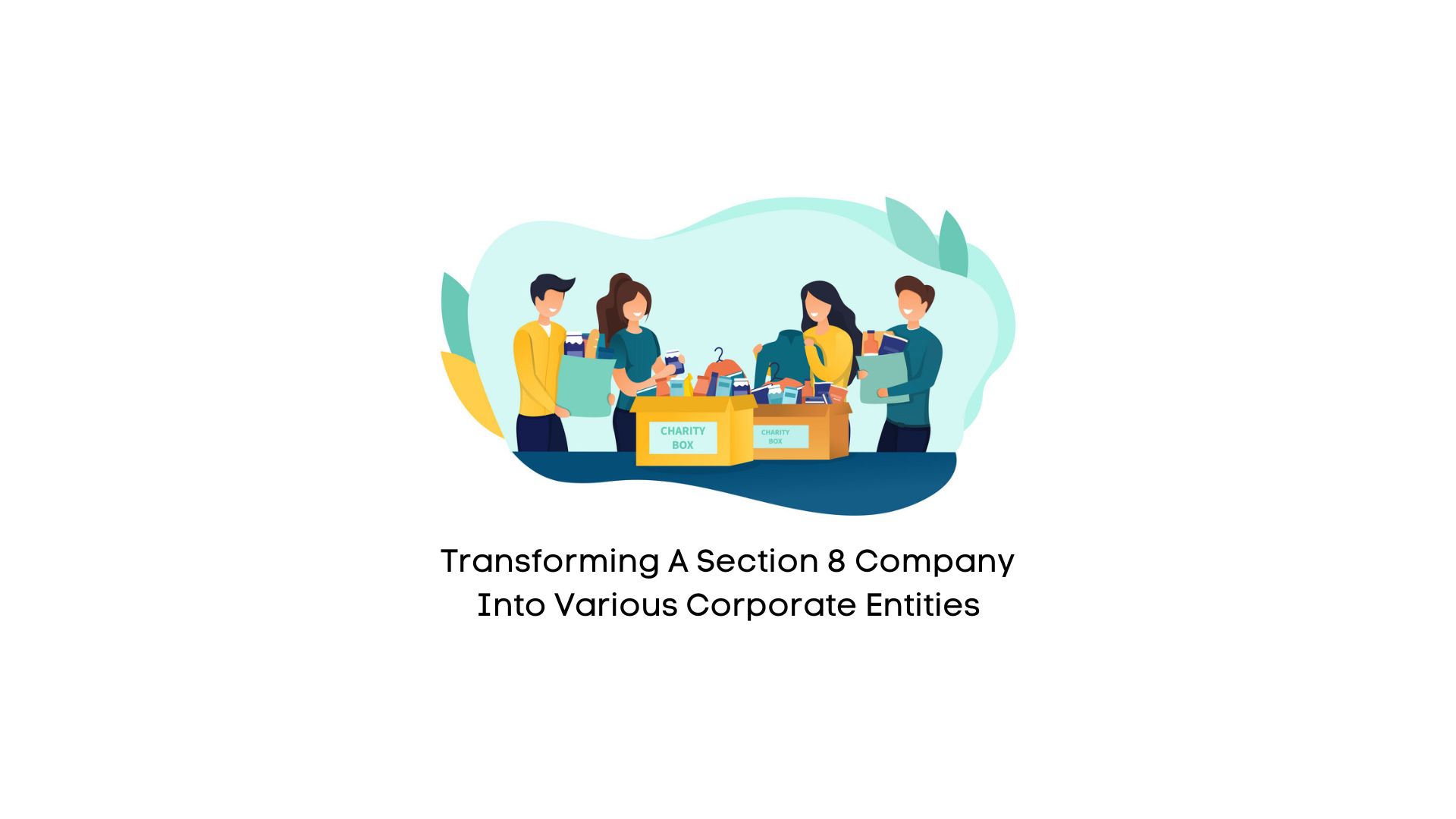
16 Feb Transforming a Section 8 Company into Various Corporate Entities

In the ever-evolving realm of corporate entities, the transformation of a Section 8 Company into different corporate structures presents opportunities for enhanced operational flexibility and adaptability. Section 8 Companies, primarily established for charitable or nonprofit purposes, can undergo a conversion process to assume various forms of companies, each with distinct features and objectives. This article offers insights into the conversion journey, outlining the steps involved and the potential benefits that accompany this transition.
Understanding Section 8 Companies:
Section 8 Companies, governed by the Companies Act, are nonprofit entities dedicated to advancing charitable, scientific, educational, or social welfare causes. Unlike profit-driven enterprises, they reinvest generated income into their societal objectives and maintain limited liability. Enjoying tax benefits, these companies play a crucial role in addressing social issues and effecting positive change across diverse sectors through their business-altruism amalgamation.
Types of Conversion Options:
When a Section 8 Company opts for conversion, it can transition into various corporate entities tailored to its new objectives and operational needs. The conversion options include:
- Private Limited Company
- Public Limited Company
- Limited Liability Partnership (LLP)
- One-Person Company (OPC)
- For-Profit Company with Specific Objectives
Each conversion entails specific adjustments to the company’s structure and documentation to align with the chosen corporate form and regulatory requirements.
Documentation Requirements:
The conversion process necessitates the submission of various documents, including:
- Application for Conversion
- Updated Memorandum and Articles of Association
- Consent of Members/Shareholders
- Director's Report
- Financial Statements
- No Objection Certificates (NOCs)
- Approval from Regulatory Authorities
- Lists of Members/Shareholders and Assets/Liabilities
- Board Resolution
- Affidavits and Declarations
- Proof of Payment
These documents facilitate regulatory compliance and provide a comprehensive overview of the company’s transition.
Conversion Procedure:
The conversion process typically involves the following steps:
- Preparation Phase
- Approval from Members/Shareholders
- Drafting Altered Memorandum and Articles of Association
- Submission of Conversion Application
- Clearance and Verification by Regulatory Authorities
- Advertisement and Handling of Objections
- Approval and Issuance of Certificate
- Transfer of Assets and Liabilities
- Compliance and Reporting
- Update of Statutory Records
- Communication of Conversion
- Addressing Tax and Financial Considerations
Conclusion:
The conversion of a Section 8 Company into different corporate entities signifies a strategic shift toward aligning organizational objectives with evolving business landscapes. This transformative decision empowers companies to adapt, innovate, and contribute meaningfully to society while pursuing sustainable success. As businesses navigate changing demands, conversion presents an avenue for growth, resilience, and continued impact in the pursuit of societal betterment.


No Comments